THE FORMAT INTERNATIONAL SECURITY PRINTERS LTD. ARCHIVE
Information and Reference of What was Found in the Archive
Stamp issues for the Philippines printed by the Format International Security Printers Ltd. and items found in the Archive
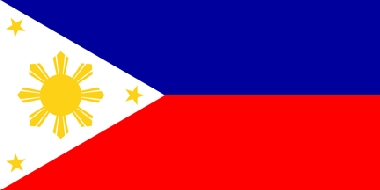

PHILIPPINES
Philippines stamps printed by Format International Security Printers Ltd.
The Format Printers only produced one set of stamps for this country. It was produced fully but never issued.
Evidence points that at least 3 million to 20 million stamps of this issue were produced. Due to the common availability on the market,
of both perforated and imperforate varieties of the issue it is certain that a majority of the stock still exists.
In 1968, the Secretary of Public Works, Transportation and Communications attempted to help the Philippine Government raise revenue
by awarding a contract to a foreigner who would print and market Philippine postage stamps solely for philatelic purposes. But this move
precipitated a great many protests and controversies, resulting in the cancellation of the stamp contract and the subsequent filing of a
court motion in the Philippines by a foreign contractor against the Bureau of Posts.
It was April of 1968 when Antonio V. Raquiza, Secretary of Public Works, Transportation and Communications of the Philippines, went to
the United States to negotiate financial aid for the proposed construction of public highways. While in New York City, Secretary Raquiza
was introduced to a local stamp dealer, Ezzet Mosden, who proposed the idea that he would print and sell Philippine stamps. It was further
proposed that Mosden would finance the project, and in return be granted exclusive rights to handle the printing and sale of these stamps.
Probably impressed with an idea that would enable the Philippine government to gain an annual income of a few million dollars through the sale
of postage stamps, Secretary Raquiza accepted the proposal and entered into an agreement with Parco International, as represented by Ben
Dunbee and Ezzet Mosden, sometime between June and August 1968. The contract appointed Parco International as the sole and exclusive agent
for the establishment of a philatelic agency to print, promote, and sell postage stamps of the Republic of the Philippines anywhere except
the Philippines for a period of five years. It further provided that Parco International would receive a commission of twenty percent of the
proceeds of the stamps sales.
The exact date of the signing of the contract between Secretary Raquiza and Parco International cannot be ascertained, with indications that
it was formalized on June 24th 1968. Others maintain it was June 26th with further reports that the contract was entered into by the two
parties on August 19th 1968. In any event, the whole proceeding was kept in utmost secrecy until Secretary Raquiza returned to the Philippines.
Contrary to Secretary Raquiza’s expectations, Enrico Palomar, an attorney who was then the Philippine Postmaster General, was opposed to the
whole idea and would not abide by the signed contract. It turned out that Secretary Raquiza had violated the normal procedures in the awarding
of such a contract, in the following ways:
1.) It must be the Postmaster General, not the Secretary of Public Works, Transportation and Communications, who signs any contract regarding
the printing and/or sale of Philippine postage stamps.
2.) The awarding of contracts, particularly those for printing and sale of Philippine stamps, should be through public bidding.
3.) The Stamp and Philatelic Section of the Bureau of Posts should design all Philippine stamps, to ensure that only correct and approved
designs are printed, and proper security measures taken.
Since these procedures had been ignored by Secretary Raquiza, the Postal Authority refused to recognize the validity of the contract.
In the meantime, Mosden had already formed a corporation in the name of the Philippine Philatelic Agency Inc (PPA) and had prepared designs
for two sets of stamps, which he later commissioned Harrison and Sons Ltd of London and Format International Security Printers to print.
The first set of stamps was a series celebrating the 19th Olympiad, held in Mexico City in 1968. The second issue was to commemorate the
International Civil and Human Rights Year, and would honor ‘Fighters for Civil and Human Rights’. This second issue is now better known as
the ‘Kennedy Mosden Issue’.
The Kennedy Mosden issue comprised five different designs which carried portraits of the Kennedy family. Printed in sheetlets of ten stamps
by Format International Security Printers, with total quantities printed of each value remaining unknown. The five stamps exist both perforated
and imperforate. Two imperforate souvenir sheets were also issued. The following values were printed:
1c and 10p Souvenir Sheet – showing the entire Kennedy clan, from patriarch Joseph P. Kennedy through brother-in-law and movie actor Peter
Lawford (a total of 14 family members in all)
2c – featuring John and Robert Kennedy
3c – depicting Robert Kennedy’s family
5p – showing John F. Kennedy delivering his presidential address, with Vice President Lyndon B. Johnson sitting beside him
10p and 5c Souvenir Sheet – showing foreign dignitaries at John F. Kennedy’s funeral possession
The designs of the Mosden issues gave the appearance of trying to ‘cash in’ on the popularity of the Kennedy family. However, Mosden later
argued, somewhat off the point, that his actions were entirely justified, as his contract with Secretary Raquiza explicitly gave him full
authority to select and print designs without further consultations with the Philippine government. Meanwhile, the Philippine press received
word of the contract and Mosden’s stamp designs, and relentlessly bombarded the whole issue with sheer mockery and criticisms. This brought
about stinging questions about the justification of the inclusion of the Kennedy family, particularly Joseph and Robert Kennedy’s
immediate relations, as fighters for human rights. This argument was further fueled by the
fact that there were no Filipinos depicted as ‘great fighters for human and civil rights’, despite formidable heroes such as Rizal, Bonifacio
and Mabini to name a few. To top things up, the 10p stamp depicting various heads of state who attended John F Kennedy’s funeral in 1963 did
not include President Macapagal, who attended the funeral in person.
Prior to the scheduled release of the ‘Mexico Olympic’ series (originally set for October 12th 1968), Mosden traveled to Manila to meet local
stamp dealers and to make some important announcements. Two meetings were held with prominent local collectors and philatelic dealers, both of
which ended up in stalemate due to protests and complaints mounted from the dealers about the validity of the contract and the legality of such
an agreement.
Sensing it was futile for Mosden to try to persuade local dealers to accept his proposition to buy and sell the stamps he had printed, he set
up a branch of the PPA in Manila. Cesar O. Borromeo was appointed branch manager and newsletters were sent to local philatelists asking those
who were interested in buying new Philippine stamps to make reservations through his office. The Bureau of Posts, however, remained firm in its
decision neither to honor the contract nor to recognize the Mode-printed stamps as bona fide postal papers. Without the official recognition
of the Philippine Postal Administration, these stamps were considered to be labels and not valid for postage. The stamps were refused official
sanction based on the following reasons:
1.) The stamps were printed without the approval of the Philippine Postal Administration.
2.) No representative from the Philippine Postal Administration was present to oversee when the stamps were printed.
3.) The quantity of stamps printed was not known to the Philippine Postal Administration.
Because of the numerous controversies involved, these Mosden stamps were brought to the attention of stamp dealers and collectors abroad.
It was further highlighted that the inclusion of imperforates and high-valued souvenir sheets were regarded as oddities intentionally produced
to mulct philatelists’ cash. Meanwhile, in the Philippines, and acting on mounting objections coming from both stamp collectors and dealers,
President Ferdinand Marcos temporarily halted the issuance of these stamps in November 1968, and instructed Secretary Raquiza to stop the
release of certain stamps. This is supported by the following cable sent by Mosden from London:
“Shortly before I planned to release the stamps for sale, I received a cable advising me that President Marcos of the Philippines wished to
cancel some of the denominations in the Kennedy and Olympic series, and was prepared to ensure that I was compensated. I accepted the
President’s proposal and asked that the Ambassador of the Philippines in London be instructed to meet the printers’ costs and other expenses
that had been incurred. I waited in London for a reply, and as none was received, I advised the Philippine Embassy in London, and cabled
President Marcos, Secretary Raquiza and the Philippine Postmaster General that if I did not receive any objection I should release the stamps
for sale on December 5.
I waited until December 6, and as no objection had been received, I started selling the stamps. I again cabled President Marcos, Secretary
Raquiza and the Postmaster General advising them that I was selling the stamps to meet the printing cost and expenses, and that I would account
to the Philippine Post Office for the net proceeds. On December 7, I received a cable asking me to send the stamps to the Philippine Postal
Fiscal Service Chief and on December 13, I again received the following cable from Secretary Raquiza: E. Mosden, London Hilton Hotel, London,
England ‘Your action approved. Stamps will be on sale at local post offices upon receipt.’ Secretary Antonio Raquiza”
Despite the foregoing, the stamps were never officially issued in any of the Philippine post offices. It was later discovered that the stamps
sent by Mosden (as mentioned in the cable) were not released by the Bureau of Posts irrespective of Secretary Raquiza’s direct order to do so.
Mrs. Teofila Garcia, the Postal Fiscal Service Chief at that time, reportedly withheld the issuance on the ground that “Mosden has yet to
submit an accounting of the printed stamps that should tally with the report of the London security printer.”
Meanwhile, Mosden concentrated the sale of his stamps abroad. This move further antagonized Philippine stamp dealers, who then grouped together
and launched a campaign protesting the sale of these ‘Mosden labels’ outside the Philippines. However, on May 23rd 1969, with hardly anyone’s
knowledge, ranking postal officials including Jose J. Leido Jr, then the Assistance Executive Secretary but acting with the authority of
President Marcos, authorized the Postmaster General to release two different Mosden stamps for postal and philatelic purposes. These were the
2c stamp of the Kennedy issue and the 2c stamp of the Mexico Olympic issue. The former was ordered to be released on June 10th 1971 and the
latter on July 10th 1971. The presidential authority further specified that the denominations to be released should not contain any errors in
design. Mysteriously, however, these two stamps never appeared at any post offices when the time came for their issuance. It turned out that
Manuel Syquio, the Acting Secretary of Public Works, Transportation and Communications at that time (Raquiza having taken ‘a leave of absence’),
gave in to the sentiments of the public and the press and issued a directive withholding the stamps’ release.
Thwarted once more in his bid to have the stamps released in the Philippines, Mosden finally filed a motion against the Bureau of Posts for
alleged breach of contract. There is no further information to the final outcome of this motion, and if indeed it was ever heard or settled
by the Court of First Instance.
1968 KENNEDY MEMORIAL UNISSUED
Philippines Kennedy Memorial 1c Stamp Pane Specimen Overprinted
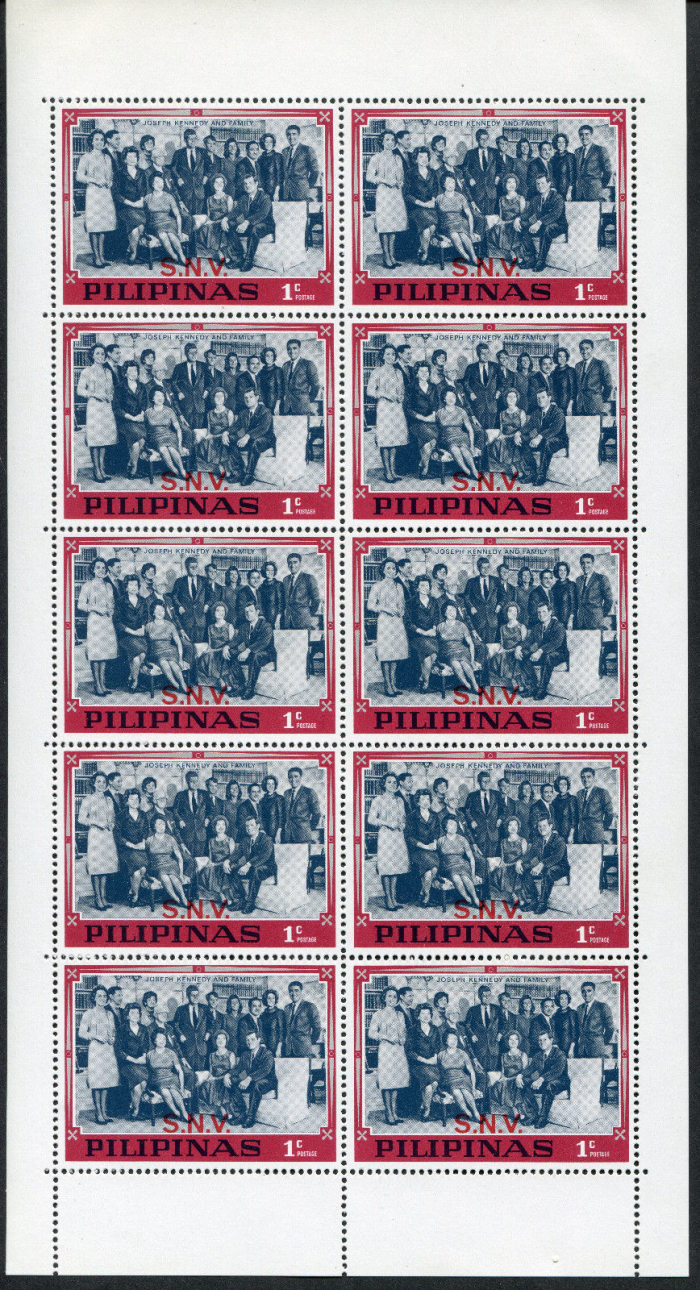
Philippines Kennedy Memorial 2c Stamp Pane Specimen Overprinted
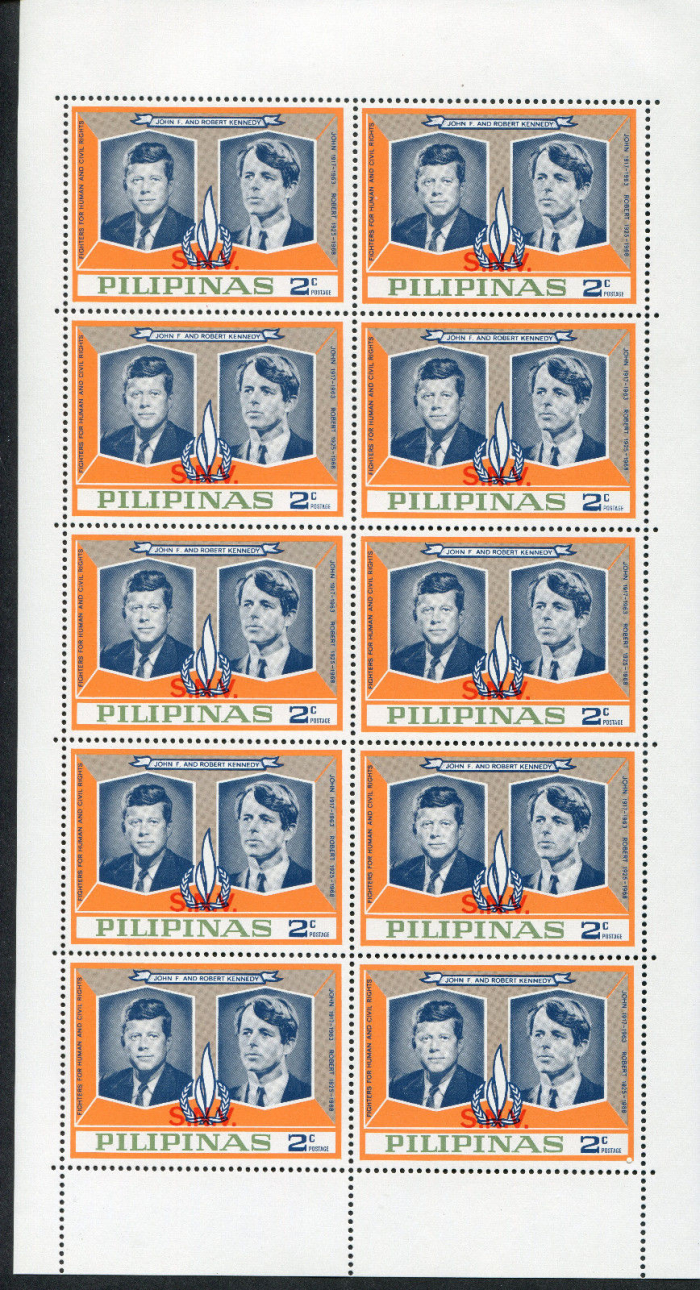
Philippines Kennedy Memorial 3c Stamp Pane Specimen Overprinted
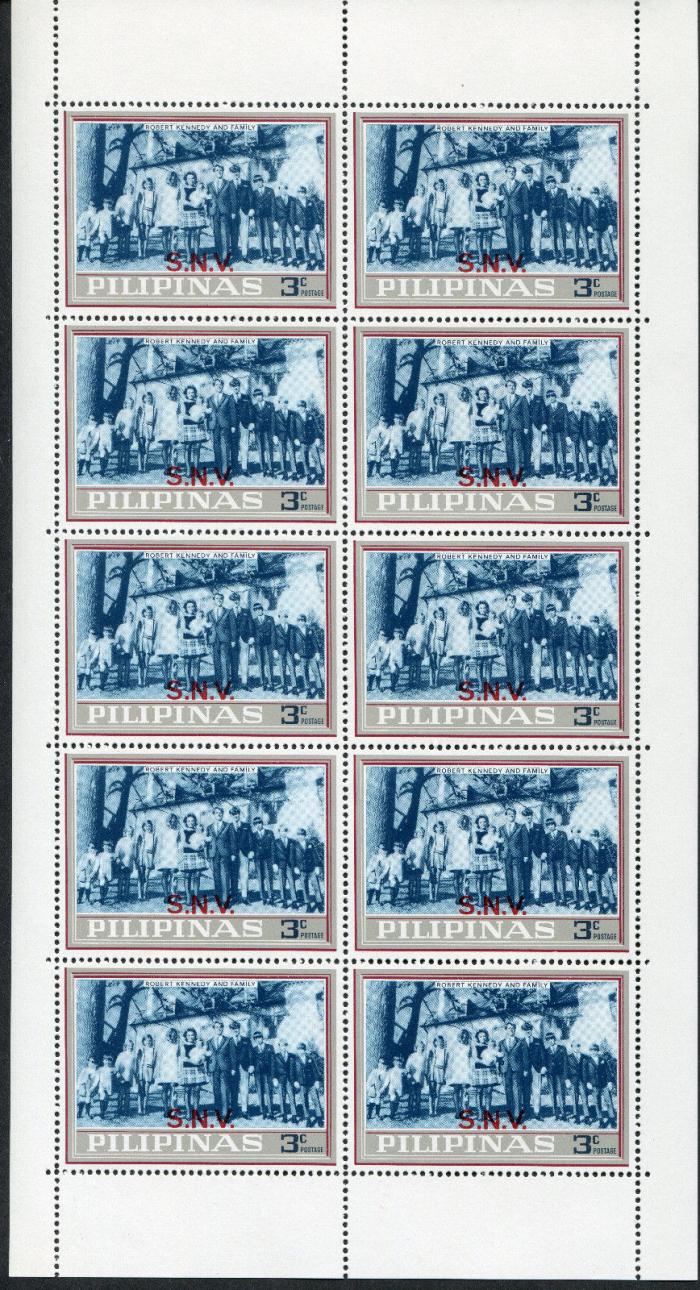
Philippines Kennedy Memorial 5c Stamp Pane Specimen Overprinted
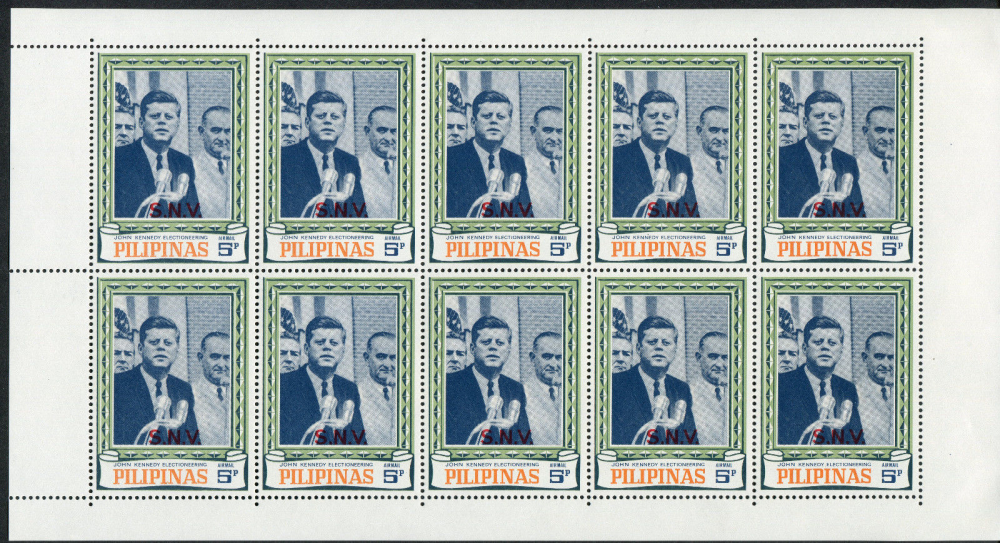
Philippines Kennedy Memorial 10c Stamp Pane Specimen Overprinted
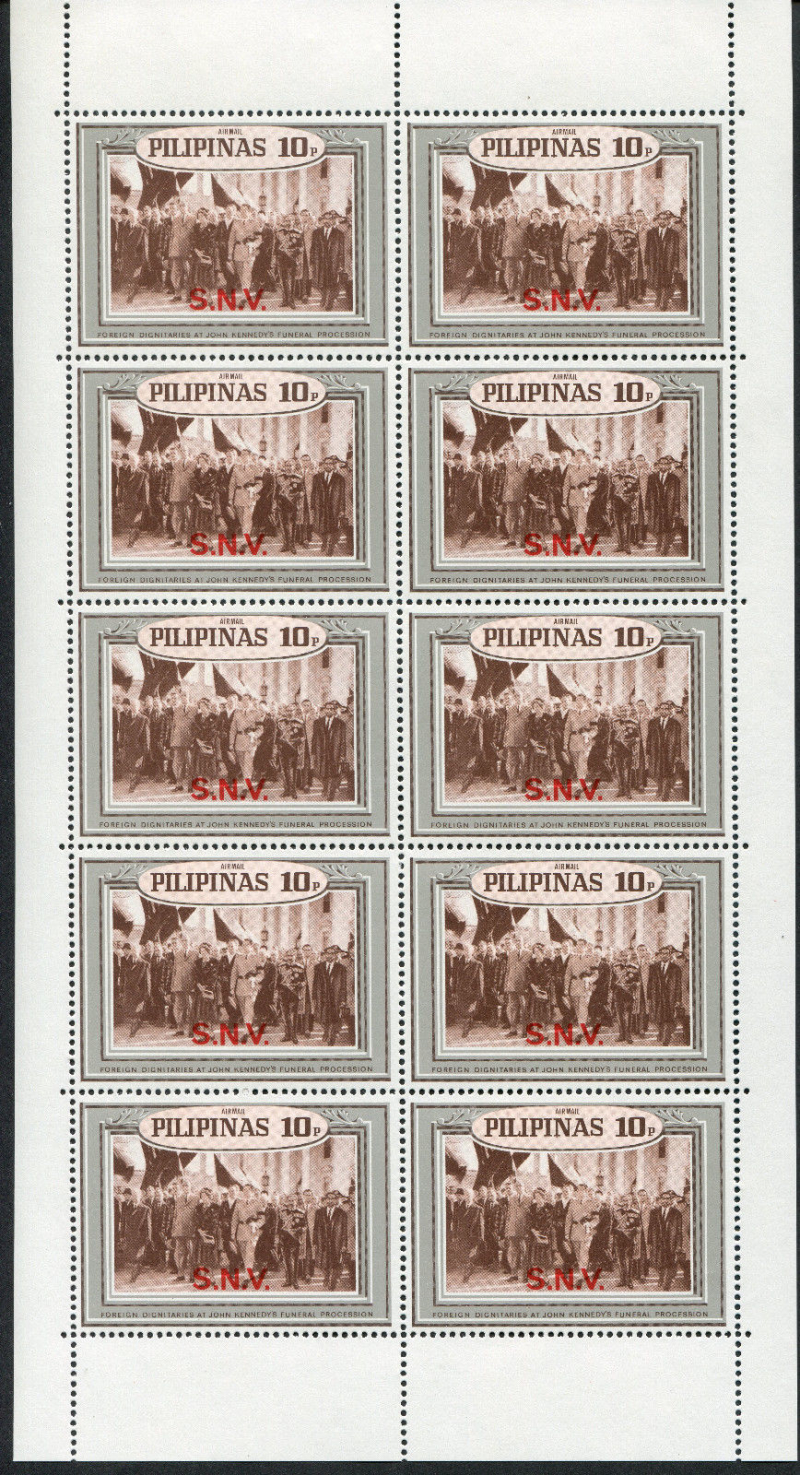
Philippines Kennedy Memorial 5c Souvenir Sheet
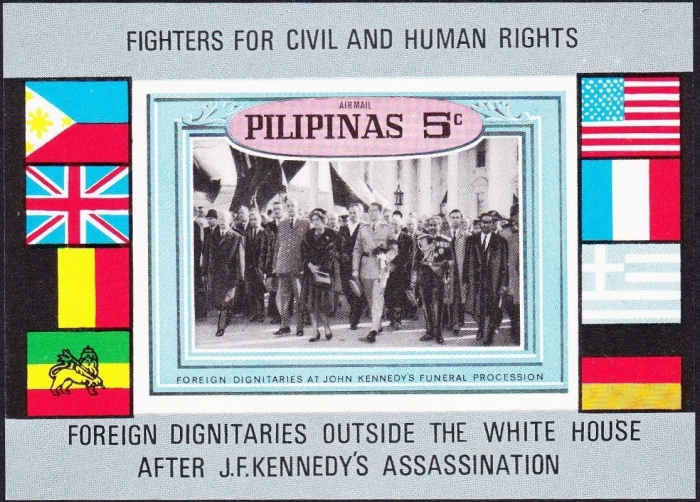
Philippines Kennedy Memorial 10p Souvenir Sheet
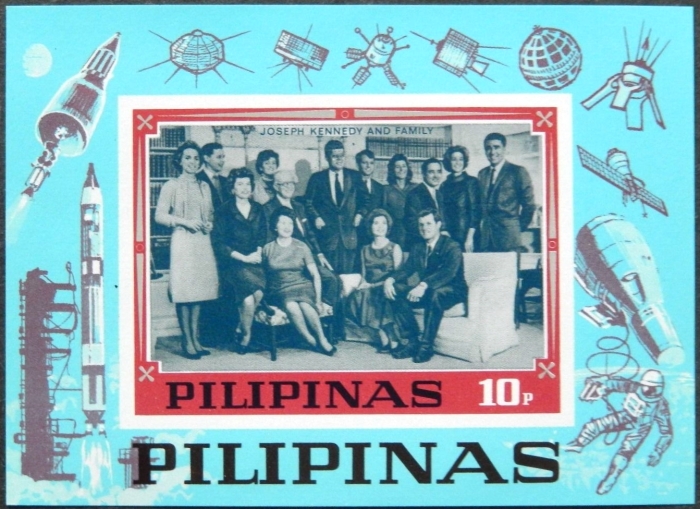
These were the only stamps printed by the Format International Security Printers Ltd. for the Philippines. Because of the shady way the
agent sold the unissued stamps it is probably the reason why Format never produced any more stamps for them.
References taken from:
Scott Catalog
Inventory list for the Format Archive by Robson Lowe
Internet Research
All Content Copyright © 2016 Golowe's Collector Stamps, All Rights Reserved
Return to Format International Security Printers Reference Homepage Here.
Collector stamps are fun!UPDATED LAST ON: 18-Jan-2016 03:59 PM

